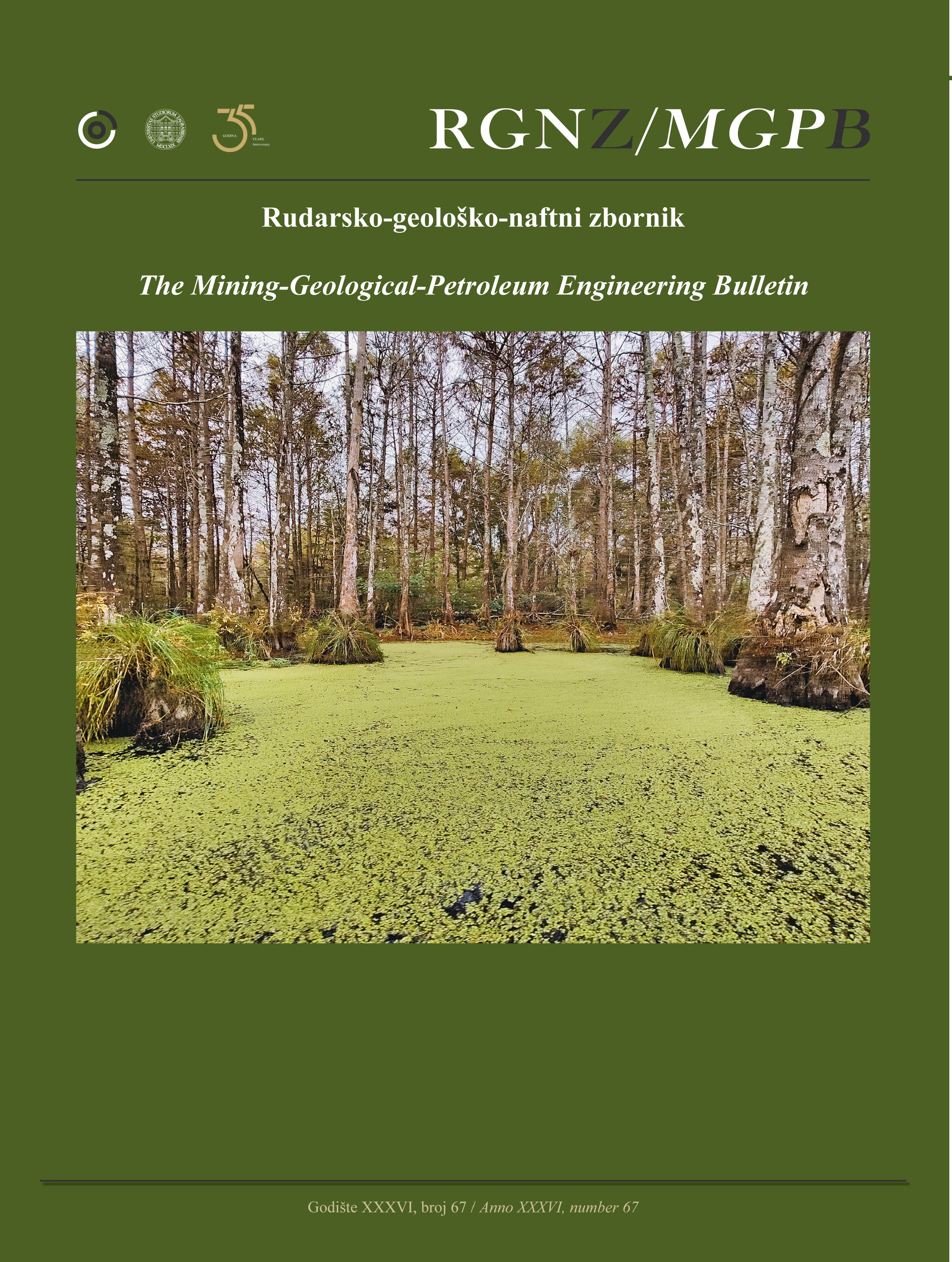Impacts of Ammonium Sulfate Leaching on Ion Adsorption Rare Earths and Soil Mechanical Properties
DOI:
https://doi.org/10.17794/rgn.2024.1.3Keywords:
in-situ leaching (ISL), soil mechanical properties, rare earth elements (REEs), ammonium sulfate leaching, environmental impactAbstract
In-situ leaching (ISL) has gained prominence as a non-destructive method for rare earth element (REE) extraction, particularly in regions like China. However, concerns over the environmental impact and soil stability due to ISL activities have surfaced following a landslide incident. This article distills the essence of a comprehensive research endeavor that delves into the effects of ammonium sulfate ISL leaching, employing concentrations of 0.05M, 0.1M, and 0.5M, on soil mechanical properties. The study encompasses physicochemical, physical, and mechanical tests, unveiling substantial alterations in shear strength, cohesion, angle of internal friction, zeta potential, liquid limit, plastic limit, and plasticity index following leaching. XRF and XRD analyses reveal the presence of REEs and distinctive mineral phases in the soil samples. Overall, ISL induces a weakening of the soil, raising concerns about potential slope failures and emphasizing the need for a deeper understanding of ISL's impact on soil properties in the context of REE mining.
Downloads
Published
How to Cite
Issue
Section
License
Copyright (c) 2024 Amirul Asyraf Mohd Hamka, Meisam Saleki, Zohreh Nabavi, Hesam Dehghani

This work is licensed under a Creative Commons Attribution 4.0 International License.
Creative Commons-BY
Authors who publish with this journal agree to the following terms:
In agreeing this form, you certify that:
- You read the ethical codex of the RGN zbornik available at journal web.
- You submitted work is your original work, and has not previously been published and does not include any form of plagiarism.
- You own copyright in the submitted work, and are therefore permitted to assign the licence to publish to RGN zbornik.
- Your submitted work contains no violation of any existing copyright or other third party right or any material of an obscene, libellous or otherwise unlawful nature.
- You have obtained permission for and acknowledged the source of any illustrations, diagrams or other material included in the work of which you are not the copyright owner.
- You have taken due care to ensure the accuracy of the work, and that, to the best of your knowledge, there are no false statements made within it.
- All co-authors of this submitted work are aware of, and in agreement with, the terms of this licence and that the submitted manuscript has been approved by these authors.
Publication licence
You retain copyright in your submitted work, according to journal license policy (CC-BY). By signing this form you agree that RGN zbornik may publish it under the publication licence. In summary the licence allows the following:
Anyone is free:
- To copy, distribute, display, and perform the work.
- To make derivative works.
Under the following conditions:
- The original author must always be given credit.
- The work may not be used for commercial purposes.
- If the work is altered, transformed, or built upon, the resulting work may only be distributed under a licence identical to this one.
Exceptions to the licence
In addition to publishing the work printed under the above licence, RGN zbornik will also enable the work to be visible online.
The journal editorial can change the licence rules anytime but it cannot retroactively restrict author(s) rights.


